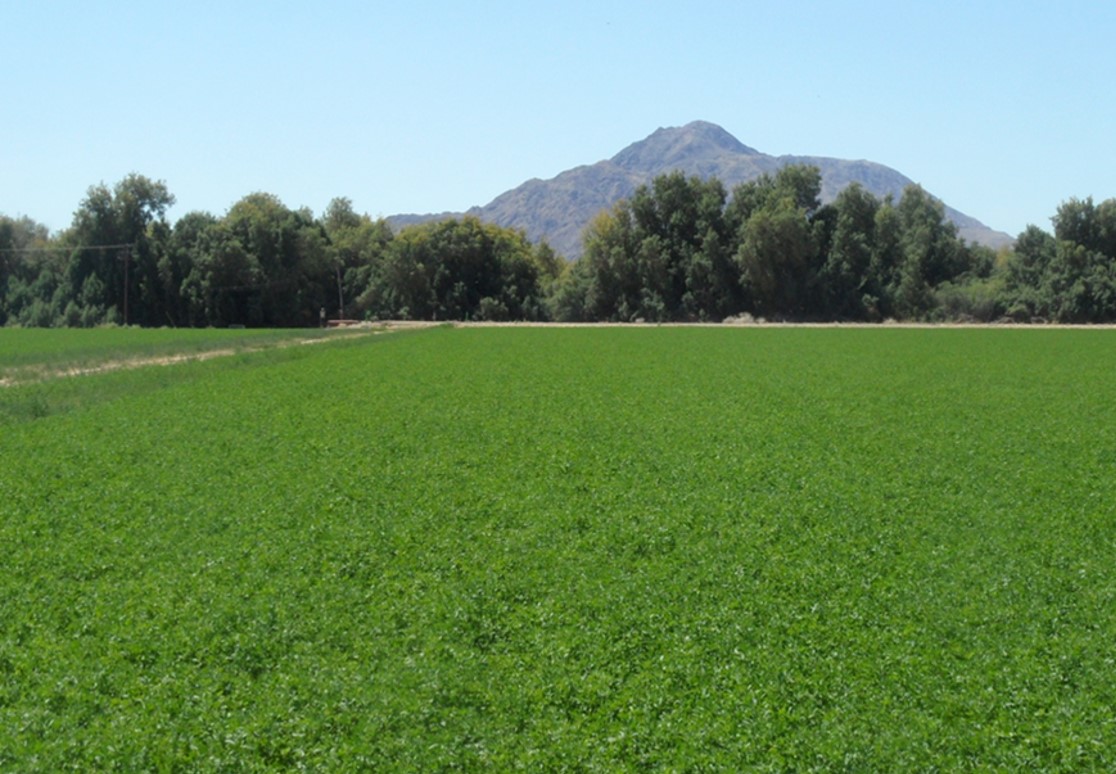Bite-sized Research Series: Hydrologic impacts of reduced alfalfa cropping in California’s Central Valley
Friday, February 16, 2018
12:00pm to 1:00pm
This event is part of the Peer Scholars event series.

Alfalfa crop
When
Friday, February 16, 201812:00pm to 1:00pm
Where
About This Event
Food production already consumes more than 90% of the available freshwater and increasing food demand and shifting dietary preferences are intensifying pressure on remaining water resources. Agricultural water stress is particularly acute in California’s Central Valley, where the production of the alfalfa – one of the most water-intensive crops – supports the state’s nation-leading dairy industry. Alfalfa is grown year-round, and single fields can be harvested more than four times a year, a practice that can require in excess of 1.5 m of irrigation water. Given the water scarcity in the region, the production of alfalfa is under increasing scrutiny with respect to long-term sustainability. However, the potential water savings associated with alfalfa replacement is not well known. This study was designed to address this knowledge gap by simulating the ecohydrology of the Upper San Joaquin’s cropping system under various scenarios of alfalfa crop replacement with crops of comparable economic value. Specifically, we use the SWAT model to evaluate the water savings from 33%, 66%, and 100% alfalfa replacement with economically comparable, but more water efficient crops such as tomatoes. Our results provide an important quantification of the potential water savings under alternative cropping systems that will provide critical guidance to farmers and decision makers as they plan for a more sustainable and productive agricultural future.
About the speaker:
Dr. Kunwar K. Singh is currently a postdoctoral research fellow in the Center for Geospatial Analytics at NC State. He uses remote sensing, geospatial analyses, and spatial statistics to study future land conversion and accelerating resource consumption under a changing climate.